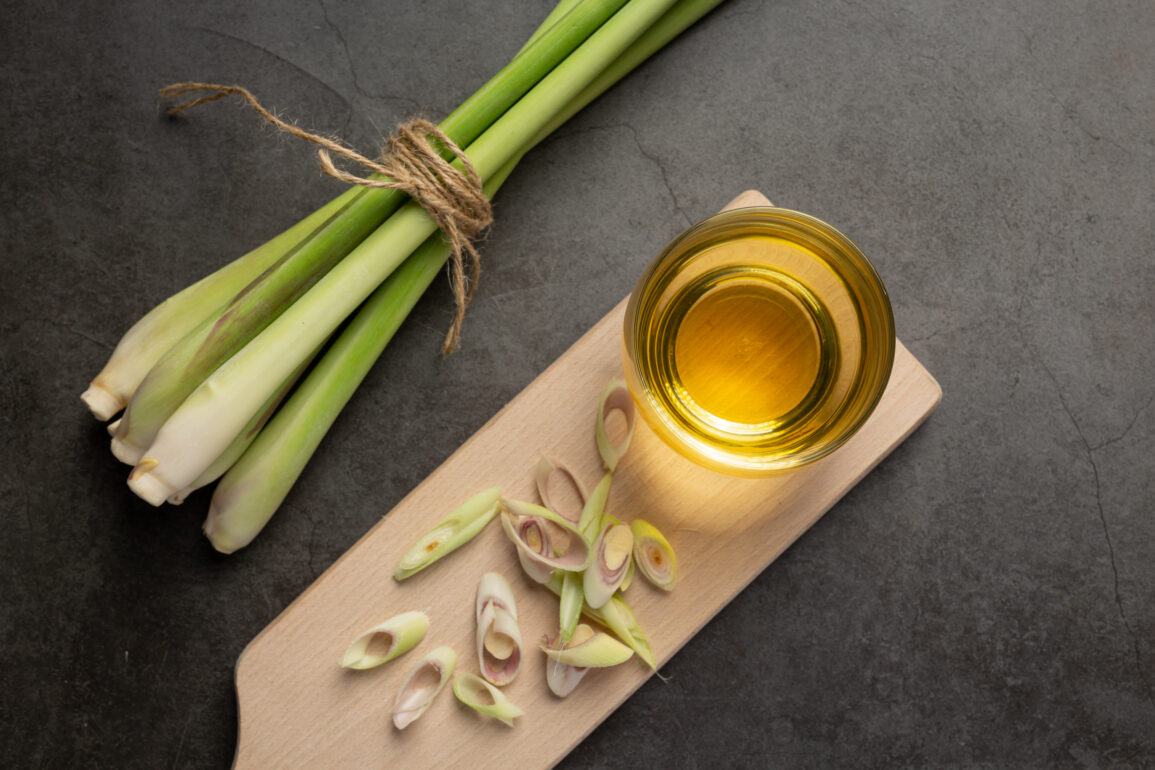Lemongrass, a fragrant herb commonly used in culinary dishes and herbal teas, is celebrated not only for its unique flavor but also for its numerous health benefits. In this article, we’ll explore the various advantages of lemongrass, its uses, and some potential drawbacks.

What is Lemongrass?
Lemongrass (Cymbopogon citratus) is a tropical plant known for its tall stalks and citrus flavor. It is widely used in Asian cuisine, particularly in Thai and Vietnamese dishes, and is also popular in herbal medicine.
Nutritional Profile of Lemongrass
Before diving into the benefits, let’s take a look at the nutritional profile of lemongrass. Below is a summary of its key nutrients per 100 grams:
| Nutrient | Amount |
|---|---|
| Calories | 99 kcal |
| Carbohydrates | 25 g |
| Protein | 3.2 g |
| Fat | 0.4 g |
| Fiber | 5.4 g |
| Vitamin A | 1,000 IU |
| Vitamin C | 2.6 mg |
| Iron | 0.4 mg |
Benefits of Lemongrass
1. Rich in Antioxidants
Lemongrass is packed with antioxidants that help combat oxidative stress in the body. This can lead to reduced inflammation and lower the risk of chronic diseases.
2. Aids Digestion
Lemongrass has been traditionally used to relieve digestive issues. It can help alleviate bloating, gas, and indigestion by promoting healthy digestion.
3. Antimicrobial Properties
Studies suggest that lemongrass possesses antimicrobial properties, making it effective against various bacteria and fungi. This quality can be beneficial in promoting overall health and preventing infections.
4. Stress Relief
The soothing aroma of lemongrass essential oil is known for its calming effects. It can help reduce anxiety and stress levels, promoting relaxation.
5. Supports Heart Health
Lemongrass may contribute to heart health by helping to lower cholesterol levels and improve circulation, thus reducing the risk of cardiovascular diseases.
6. Weight Management
Incorporating lemongrass into your diet may aid in weight management due to its metabolism-boosting properties.
7. Skin Health
Lemongrass oil is often used in skincare products for its antibacterial properties. It may help improve skin conditions such as acne and oily skin.
8. Anti-Inflammatory Properties
Lemongrass contains compounds that may help reduce inflammation in the body, potentially benefiting those with inflammatory conditions like arthritis.
9. Blood Sugar Regulation
Some studies suggest that lemongrass may help lower blood sugar levels, making it beneficial for individuals with diabetes or those at risk of developing the condition.
10. Detoxification
Lemongrass acts as a natural diuretic, helping to flush out toxins from the body. This can support kidney health and overall detoxification processes.
11. Improves Oral Health
The antimicrobial properties of lemongrass can also benefit oral health by combating bacteria that cause bad breath and dental issues.
12. Enhances Hair Health
Lemongrass oil can be used in hair care products to promote a healthy scalp, reduce dandruff, and add shine to hair.
13. Mood Booster
In addition to stress relief, lemongrass has mood-enhancing properties that can help reduce symptoms of depression and boost overall mental health.
14. Anti-Cancer Properties
Some studies suggest that lemongrass may have anti-cancer effects due to its antioxidant properties, which help protect cells from damage.
15. Alleviates Menstrual Discomfort
Lemongrass tea is traditionally used to relieve menstrual cramps and other symptoms associated with menstruation.
16. Promotes Healthy Sleep
The calming effects of lemongrass can help improve sleep quality, making it beneficial for those suffering from insomnia or sleep disturbances.
17. Supports Liver Health
Lemongrass may aid in liver detoxification and promote overall liver health, which is crucial for metabolic processes.
18. Helps with Respiratory Issues
The inhalation of lemongrass steam can help alleviate symptoms of colds, flu, and sinus congestion due to its soothing properties.
19. Natural Pain Reliever
Lemongrass has analgesic properties that may help reduce pain and discomfort from headaches or muscle soreness.
20. Improves Circulation
Regular consumption of lemongrass may enhance blood circulation, which can be beneficial for cardiovascular health.
21. Boosts Immune System
Rich in vitamin C and other antioxidants, lemongrass can help strengthen the immune system and improve the body’s defense against illnesses.
22. Enhances Digestion of Fats
Lemongrass is known to aid the digestion of fats, making it beneficial for individuals who struggle with fat digestion.
23. May Lower Blood Pressure
Some research suggests that lemongrass may help lower blood pressure, promoting heart health and reducing the risk of hypertension.
24. Rich in Folate
Lemongrass is a good source of folate, which is essential for DNA synthesis and may help reduce the risk of neural tube defects in pregnant women.
25. Natural Preservative
Due to its antimicrobial properties, lemongrass can act as a natural preservative in food, extending shelf life without synthetic additives.
26. Culinary Versatility
Lemongrass can be used in a variety of culinary applications, making it an excellent addition to both savory and sweet dishes.
27. Enhances Flavors in Cooking
Its unique citrus flavor can enhance the taste of various dishes, making it a favorite among chefs and home cooks alike.
28. Supports Weight Loss
Lemongrass may help in weight management by promoting feelings of fullness and reducing cravings, thanks to its fiber content.
29. Improves Mood
The aroma of lemongrass can positively influence mood and alleviate symptoms of anxiety and depression.
30. Natural Antiseptic
Lemongrass has natural antiseptic properties, making it useful for minor cuts and abrasions when applied topically (in diluted form).
31. Enhances Flavor in Beverages
Lemongrass can be added to cocktails, smoothies, and non-alcoholic beverages for a refreshing twist.
32. Supports Healthy Cholesterol Levels
Some studies indicate that lemongrass may help lower LDL (bad) cholesterol levels while raising HDL (good) cholesterol.
33. Improves Digestive Health
Its fiber content helps regulate bowel movements and prevent constipation, promoting overall digestive health.
34. Enhances Skin Elasticity
Lemongrass oil can improve skin elasticity and help maintain a youthful appearance when used in skincare routines.
35. Reduces Bloating
Drinking lemongrass tea may help reduce bloating and gas, providing relief from digestive discomfort.
36. Natural Deodorizer
Lemongrass can be used as a natural deodorizer in homes or cars, helping to eliminate unwanted odors.
37. Alleviates Nausea
Lemongrass tea is often used as a natural remedy for nausea and upset stomach, making it useful during travel or illness.
38. Supports Healthy Hair Growth
Using lemongrass oil in hair treatments can promote hair growth and improve overall scalp health.
39. Acts as a Natural Insect Repellent
Lemongrass oil is commonly used in natural insect repellents, helping to keep mosquitoes and other pests at bay.
40. Helps with Cramps and Spasms
The muscle-relaxing properties of lemongrass can help alleviate cramps and spasms, whether from exercise or menstrual pain.
41. Anti-Fungal Properties
Lemongrass has shown effectiveness against certain types of fungi, making it beneficial for treating fungal infections like athlete’s foot.
42. Supports Gut Health
The fibers in lemongrass can promote the growth of beneficial gut bacteria, contributing to improved gut health.
43. Reduces Anxiety Symptoms
Aromatherapy with lemongrass essential oil can help alleviate anxiety symptoms, promoting a sense of calm and relaxation.
44. Alleviates Fatigue
Lemongrass can provide a natural energy boost, helping to reduce feelings of fatigue and tiredness.
45. Improves Skin Tone
Lemongrass oil can help even out skin tone and reduce the appearance of dark spots and blemishes.
46. Provides Hydration
Lemongrass-infused water is a refreshing way to stay hydrated while also gaining health benefits.
47. Enhances Flavor in Marinades
Add lemongrass to marinades for meats and vegetables to elevate flavor and tenderize proteins.
48. May Help Prevent Osteoporosis
Some studies suggest that lemongrass may help maintain bone density and reduce the risk of osteoporosis.
49. Acts as a Natural Mood Stabilizer
Lemongrass can have a stabilizing effect on mood, helping to reduce emotional fluctuations.
50. Natural Immune Booster
Rich in vitamin C, lemongrass can support immune function and help the body fight off infections.
51. Promotes Healthy Gums
The antimicrobial properties of lemongrass can help improve gum health and prevent oral infections.
52. Aids in Detoxifying the Skin
Lemongrass oil can help cleanse the skin and remove impurities, promoting a clear complexion.
53. Supports Healthy Metabolism
Lemongrass may help boost metabolic rate, assisting in weight management and energy levels.
54. Improves Cognitive Function
Aromatherapy with lemongrass can enhance focus and concentration, making it beneficial for studying or working.
55. Natural Anti-Inflammatory
The anti-inflammatory properties of lemongrass may help alleviate symptoms of chronic inflammation.
56. Enhances Flavor in Desserts
Incorporate lemongrass into desserts like sorbets or custards for a unique flavor profile.
57. May Help with Allergies
Lemongrass has antihistamine properties that may alleviate symptoms of seasonal allergies.
58. Aids in Wound Healing
Lemongrass oil can help speed up the healing process of minor wounds and cuts when applied topically (in diluted form).
59. Reduces Risk of Kidney Stones
The diuretic properties of lemongrass may help reduce the risk of kidney stones by promoting urine production.
60. Improves Overall Hydration
Drinking lemongrass tea can contribute to overall fluid intake, promoting better hydration.
61. Enhances Flavor in Dressings
Use lemongrass in salad dressings for a zesty kick that pairs well with a variety of salads.
62. Supports Joint Health
Lemongrass may help alleviate joint pain and stiffness, making it beneficial for those with arthritis.
63. Acts as a Natural Expectorant
Lemongrass can help clear mucus from the airways, making it beneficial for respiratory conditions.
64. Boosts Athletic Performance
Lemongrass may enhance athletic performance by reducing fatigue and increasing endurance.
65. Provides Antibacterial Benefits
The antibacterial properties of lemongrass can help prevent infections and promote overall health.
66. Enhances Flavor in Curries
Add lemongrass to curries for an aromatic depth that enhances the overall flavor profile.
67. Acts as a Natural Calming Agent
The soothing scent of lemongrass can help calm an overactive mind, making it great for meditation.
68. Improves Blood Circulation
Regular consumption of lemongrass may promote better blood flow, benefiting cardiovascular health.
69. Aids in Muscle Recovery
Lemongrass may help reduce muscle soreness and promote recovery after intense exercise.
70. Supports Emotional Well-Being
The uplifting aroma of lemongrass can contribute to emotional well-being, helping to uplift mood and reduce stress.
71. May Reduce Symptoms of IBS
Lemongrass may help alleviate symptoms associated with Irritable Bowel Syndrome (IBS), such as bloating and abdominal pain.
72. Supports Healthy Eye Function
The antioxidants in lemongrass can help protect the eyes from oxidative stress and may support overall eye health.
73. Helps Maintain Healthy Skin pH
Lemongrass can help balance skin pH levels, contributing to a healthier complexion.
74. Acts as a Natural Anti-Aging Agent
Lemongrass is rich in antioxidants, which can help combat signs of aging and promote youthful skin.
75. Improves Respiratory Health
Lemongrass can help relieve symptoms of asthma and bronchitis due to its soothing properties.
76. May Help Control Blood Sugar Levels
Some research suggests that lemongrass may assist in regulating blood sugar levels, beneficial for diabetics.
77. Enhances Flavor in Infused Alcohols
Use lemongrass to infuse spirits like vodka or gin for unique cocktail flavors.
78. Provides Relief from Sunburn
Diluted lemongrass oil can be applied to sunburned skin for soothing relief.
79. May Aid in Cancer Prevention
Some studies suggest that compounds in lemongrass may inhibit the growth of cancer cells.
80. Supports Healthy Thyroid Function
Lemongrass can contribute to overall endocrine health, potentially supporting thyroid function.
81. Enhances Flavor in Pickles
Use lemongrass in pickling recipes to add a fresh, citrusy note.
82. Natural Fertilizer
Lemongrass can be used in homemade fertilizers, enriching garden soil with nutrients.
83. Reduces Water Retention
The diuretic properties of lemongrass can help reduce water retention in the body.
84. May Help Lower Cholesterol Levels
Regular consumption of lemongrass may assist in lowering cholesterol levels, promoting heart health.
85. Helps Manage Stress Hormones
Lemongrass may help balance cortisol levels, reducing the impact of stress on the body.
86. Improves Gut Motility
The fiber content in lemongrass can aid in improving gut motility and preventing constipation.
87. Reduces Inflammation in the Body
Lemongrass may help lower inflammation levels, benefiting overall health and reducing chronic disease risk.
88. Acts as a Natural Pain Reliever
Topically applying diluted lemongrass oil may provide relief from headaches and muscle pain.
89. Improves Overall Energy Levels
Consuming lemongrass can help enhance energy levels and reduce feelings of lethargy.
90. Supports Mental Clarity
Aromatherapy with lemongrass can improve focus and mental clarity, making it useful for study sessions.
91. Natural Mood Enhancer
The aroma of lemongrass can uplift mood and promote feelings of happiness and well-being.
92. Improves Skin Hydration
Lemongrass oil can help lock in moisture, improving overall skin hydration.
93. Can Help Combat Respiratory Infections
The antimicrobial properties of lemongrass may help prevent respiratory infections.
94. Reduces Risk of Gout
Lemongrass may help lower uric acid levels, potentially reducing the risk of gout flare-ups.
95. Aids in Reducing Excess Oil Production
Lemongrass can help regulate oil production in the skin, making it beneficial for oily skin types.
96. Supports Hair Strength
Using lemongrass oil in hair treatments can strengthen hair and reduce breakage.
97. Acts as a Natural Cough Suppressant
Lemongrass tea can provide relief from coughs and soothe irritated throats.
98. May Help with Seasonal Affective Disorder (SAD)
The uplifting scent of lemongrass can help alleviate symptoms of Seasonal Affective Disorder.
99. Improves Mental Focus During Study
The invigorating aroma can enhance cognitive function, making it easier to concentrate.
100. Provides a Source of Dietary Fiber
Lemongrass is a good source of dietary fiber, which aids in digestion and helps maintain a healthy weight.
How to Use Lemongrass
Culinary Uses
- Soups and Curries: Add to soups or curries for a fresh, citrusy flavor.
- Teas: Brew fresh or dried lemongrass to make a refreshing herbal tea.
- Marinades: Use in marinades for meats or fish to enhance flavor.
Aromatherapy
- Essential Oil: Use lemongrass essential oil in diffusers for stress relief or in massage oils for its relaxing properties.
More Ways to Use Lemongrass
Culinary Uses
- Salads: Thinly slice lemongrass and add it to salads for a zesty flavor.
- Infused Water: Steep lemongrass in hot water to make a refreshing infused drink.
- Desserts: Incorporate lemongrass into sorbets or panna cotta for a unique twist.
Herbal Remedies
- Tea Blends: Combine lemongrass with ginger or green tea for added health benefits.
- Steam Inhalation: Use lemongrass in steam inhalation to relieve respiratory issues.
Home Remedies
- Homemade Insect Repellent: Combine lemongrass oil with other essential oils to create a natural insect repellent.
- Scented Candles: Add lemongrass essential oil to homemade candles for a refreshing aroma.
Advantages and Disadvantages of Lemongrass
| Advantages | Disadvantages |
|---|---|
| Natural remedy for digestive issues | Possible allergic reactions in sensitive individuals |
| Rich in essential nutrients | Overconsumption can lead to stomach upset |
| Promotes relaxation and stress relief | May interact with certain medications (e.g., anti-diabetic drugs) |
| Antimicrobial properties for overall health | Not suitable for everyone (e.g., pregnant women, children under 2) |
| Supports heart and metabolic health | Limited research on long-term effects |
| May enhance cognitive function | Essential oil can be irritating to the skin if not diluted |
| Aids in detoxification | Some individuals may experience gastrointestinal discomfort |
| Contributes to improved skin and hair health | Overuse in cooking may overpower other flavors |
Conclusion
Lemongrass is a versatile herb that not only adds a refreshing taste to dishes but also offers a plethora of health benefits. From its anti-inflammatory properties to its potential role in blood sugar regulation, lemongrass is a fantastic addition to both your kitchen and your wellness routine.
By being mindful of its potential drawbacks and consulting with a healthcare provider if needed, you can enjoy all the benefits lemongrass has to offer. Experiment with various culinary and therapeutic applications to make the most of this amazing herb!
For more insights and recipes featuring lemongrass, keep following our blog!










